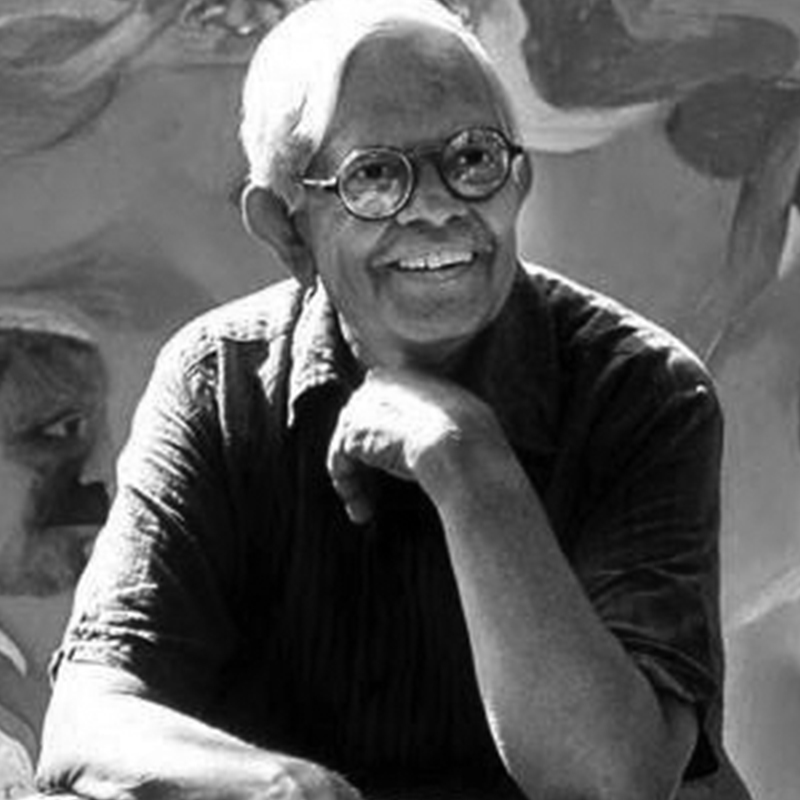
Bhupen Khakhar (1934-2003) was born in Bombay. He received a BA in Economics from the University of Bombay in 1954, as well as a BA of Commerce from Sydenham College of Commerce and Economics in 1956.
Khakhar began his career as a chartered accountant, however made a career change following his meeting with poet and painter Gulammohammed Sheikh in 1958. Sheikh encouraged Khakhar to enroll in the two-year MA in Art Criticism course at Maharaja Sayajirao University, Baroda. As a result, Khakhar became a core figure in the Baroda School – a group of influential figurative painters at the time.
Although a largely self-taught artist, Kharkhar’s works received considerable praise and recognition in the 1970s. His oil paintings, often narrative and autobiographical, were figurative in nature and expressed themes of the human body and identity. Openly homosexual, his consideration of identity and human body took more nuanced stances in relation to gender definitions, and were present in his work. He explored his sexuality, touching on the personal and cultural implications of same-sex intimacy with a distinctly Indian perspective. He often included himself in these amorous or contemplative scenes. The autobiographical element of his work is a starkly honest act of confession, which can be both provocative and moving.
Khakhar’s paintings often contained learned references to Indian mythology and mythological themes as well as imaginative and deeply personal references. His early works celebrated the day to day struggles of India’s common man, such as the barber and the watch repairman. He reproduced the environments of small Indian shops in these paintings, and revealed a talent for seeing the intriguing within the mundane. He has often been linked to the Pop Art movement and parallels have been drawn with the work of David Hockney.
In the 1990s, Khakhar began experimenting more with watercolours and grew increasingly confident in both expression and technique. He is best known for his paintings, but also experimented with installations, glass-painting, ceramics, and writing.
In 2000, Khakhar received the Prince Claus Award at the Royal Palace of Amsterdam. Among other honours, he won the Asian Council’s Starr Foundation Fellowship in 1986, and the Padma Shri in 1984.
Khakhar passed away in Baroda in 2003. Three retrospectives were held in his memory, including ‘Retrospective’ at the National Gallery of Modern Art (2003); ‘A Tribute to Bhupen Khakhar’ at Tao Art Gallery (2004); ‘Bhupen Among Friends: A Tribute to Bhupen Khakhar by Friends: Amit Ambalal, Jogen Chowdhury, Anju Dodiya, Atul Dodiya et al.’, at Gallery Chemould (2005). In 2016, Tate Modern presented the first international retrospective since his death, ‘You Can’t Please All’.